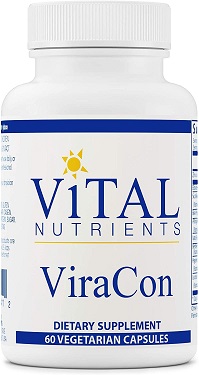Herbal medicine, also known as phytomedicine, is still widely disparaged, despite,
-
- the long human history of plant medicine (as early as 6,000 BC in India, 1,600 BC in China and Egypt, and 400 BC in Greece);
- the herbal antecedents of the modern pharmaceutical industry (approximately 25% of modern drugs used in the United States are derived from plants);
- the 26 high-impact scientific journals that publish research on clinical actions and cellular mechanisms of herbal medicine/phytomedicine; and
- the multi-billion dollar herbal supplement industry (6.22 Billion USD in 2018).
Herbal medicine for COVID-19 is an even more controversial topic. When the SARS-CoV-2 coronavirus first appeared in early 2020, I remembered a book titled Herbal Antivirals, written by Stephen Harrod Buhner. With so little known about the virus at the time, and the fear of a large pandemic, I started reading about herbal medicine for viral illnesses, thinking to protect myself, if need be. Herbal Antivirals is a well-written, evidence-based medicine book describing phyto-compounds with scientifically proven antiviral actions. Buhner cites over 1000 peer-reviewed papers in the field of antiviral phytomedicine. Writing before the SARS-CoV-2/COVID19 pandemic, Buhner presciently included a section on herbal medicine for coronaviruses. Based on his recommendations, I purchased a number of herbal supplements in preparation for the pandemic, to hopefully treat myself with herbal medicine for COVID-19.
In April 2020, the first COVID19 peak in Indiana, I developed a viral illness with unusual symptoms: a strange fever that came in waves, muscle weakness, chest discomfort, a feeling of being unwell. The symptoms were not like any cold or flu that I had had before. The muscle weakness was so severe I thought my legs would buckle out beneath me. Muscle weakness is a “neurological symptom” reported in some cases of COVID19.
Using Buhner’s book as a reference, I was able to successfully treat myself for this mild viral infection, using the following supplements and herbs:
ViraCon (Vital Nutrients, Middletown, CT USA) containing Zinc, Elderberry, Scutellaria, Propolis, Astragalus, Isatis, Berberine HCl, Hypericum and Licorice root. This formula contains some of the key herbs that Buhner recommends for coronaviruses.

Cordyceps mushroom tincture – this mushroom extract helped with the muscle weakness I felt during my illness.
Propolis tincture – Propolis is a resin-like material made by bees. Anecdotal reports suggest it is effective against colds. I felt better after taking it.
Wellness Formula (Source Natural, Scotts Valley, CA USA) with 31 immune-supporting ingredients.
Vitamin A, Vitamin D, Zinc lozenges, Multivitamins
Considering the importance of herbal medicine in Traditional Chinese Medicine, and the large number of TCM practitioners in China, I suspect that the Chinese gave some of their mild COVID19 patients herbal remedies.
In general, colds and flu are such common viruses that it is strange that there are no over-the-counter (OTC) antiviral drugs. When you look at so-called pharmaceuticals for colds and flu, such as Tylenol and decongestants and antihistamines, these only treat symptoms, but do not fight the virus itself. What is needed is a true antiviral OTC for mild cases of colds and flu. An article in December 2019 suggested that Tamiflu, an antiviral drug for influenza, would be available over-the-counter at some point. Currently antiviral drugs for influenza are significantly under-prescribed.
Rather than expend all of our energy on vaccines for novel viruses, and endless booster shots, it would be more cost efficient to create OTC antivirals, especially considering that most viral infections are mild and do not require hospitalization nor the care of a physician. Phytomedicine offers tantalizing leads on how we might develop OTC antivirals.
Header image, Isatis tinctoria, by Stefan Lefnaer
